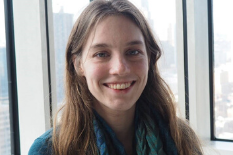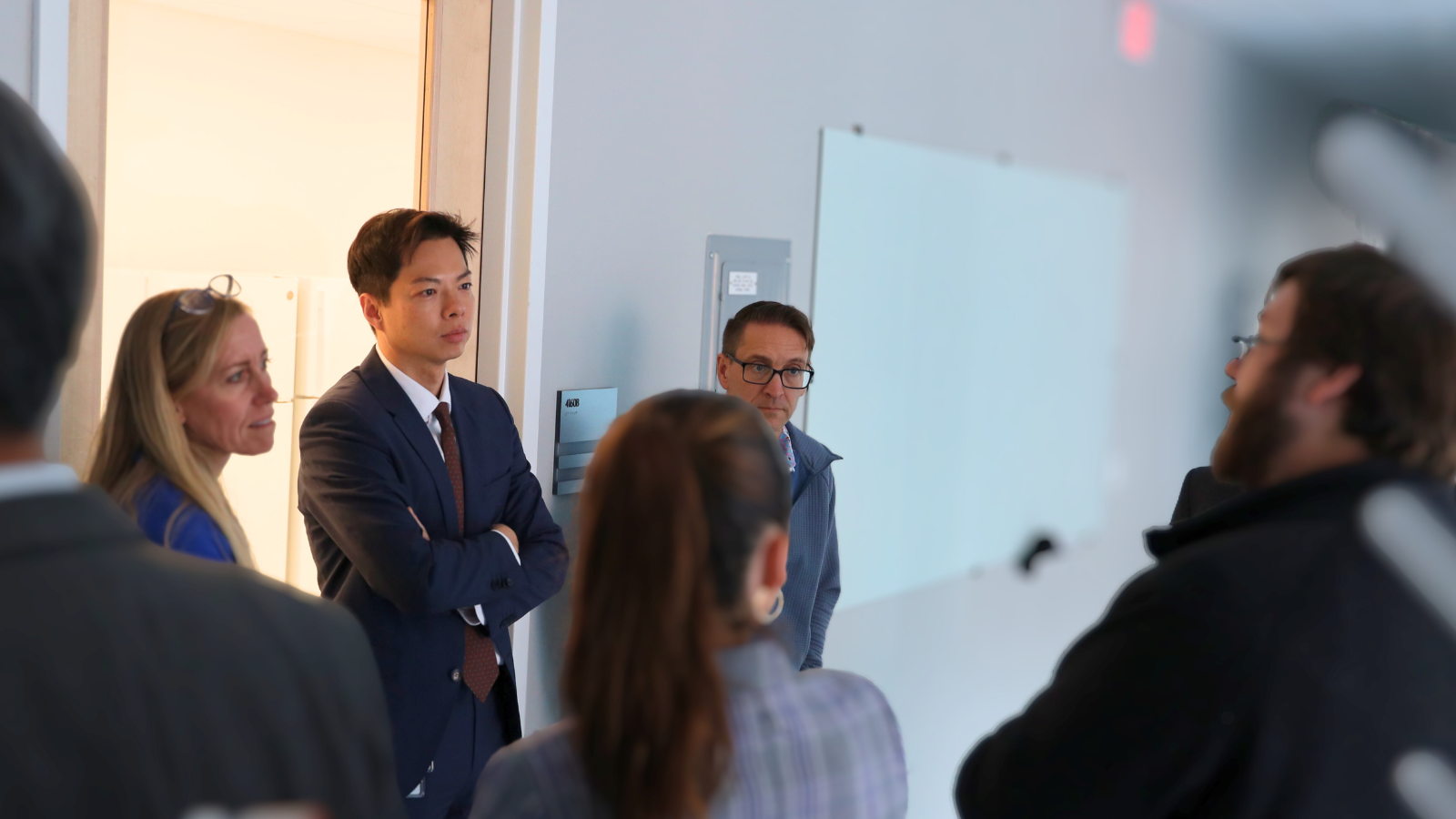News Story
Stephens Wins First Place Dean's Doctoral Student Research Award

Kristina Stephens
Fischell Department of Bioengineering (BIOE) doctoral student researcher Kristina Stephens was honored with the first place A. James Clark School of Engineering 2020 Dean’s Doctoral Student Researcher Awards.
The competition recognizes distinguished graduate student researchers in order to help propel their careers and demonstrate the value of high-quality engineering research. Student entries were judged by members of advisory boards in department-level and final college-level competitions.
“I was honored to be selected for this award,” says Stephens. “I believe synthetic biology and cell-based systems have high potential to affect human health, and I was excited to present my work on advancing cell-based systems to members of the broader engineering community. It was wonderful to be recognized after much hard work, and I was thrilled that the research was well-received by the broader community.”
Stephens’ project is titled “Programming Bacterial Consortia for Autonomous Regulation and Coordinated Activity.” The potential of genetically engineered microbes seems nearly infinite with applications ranging from human health to bioprocessing. However, it has often proven difficult to program single cell populations to carry out multiple or complex tasks effectively. The use of engineered consortia, where tasks are divided amongst populations that work together, can expand the processing power of synthetic biology systems but requires new tools for coordinating subpopulations. In this research, methods were developed for autonomous control of individual populations and their composition within multi-population bacterial systems. Quorum sensing processes, native systems for cell-cell communication, were re-engineered to enable signal-modulated cell growth rate and coordination between subpopulations. Using these tools, a co-culture was developed that autonomously adjusts its culture composition based on the level of a cue of interest. This illustrates a new approach in synthetic biology; rather than having one population detect and respond to a signal, multiple populations can coordinate their response to that signal. Simple mathematical models were developed to predict culture behavior given a range of conditions. The techniques developed here may enable further use of co-cultures or synthetic consortia by synthetic biologists and metabolic engineers for varied applications.
William Bentley, Robert E. Fischell Distinguished Professor and Director of the Robert E. Fischell Institute for Biomedical Devices, is Kristina’s advisor and Principal Investigator. "There is great interest in understanding how bacteria "talk" to each other, especially where their collective behaviors are so vitally important (e.g., the gastrointestinal tract),” explains Bentley. “Kristina has developed a way to co-opt the natural signaling processes in bacterial populations so that their composition can be autonomously controlled. In this way, mixtures of cells can be engineered to carry out specific functions in pre-defined ways. Her concepts will impact fields such as biomanufacturing, biofuels and food production, and even human health."
Published July 8, 2020









